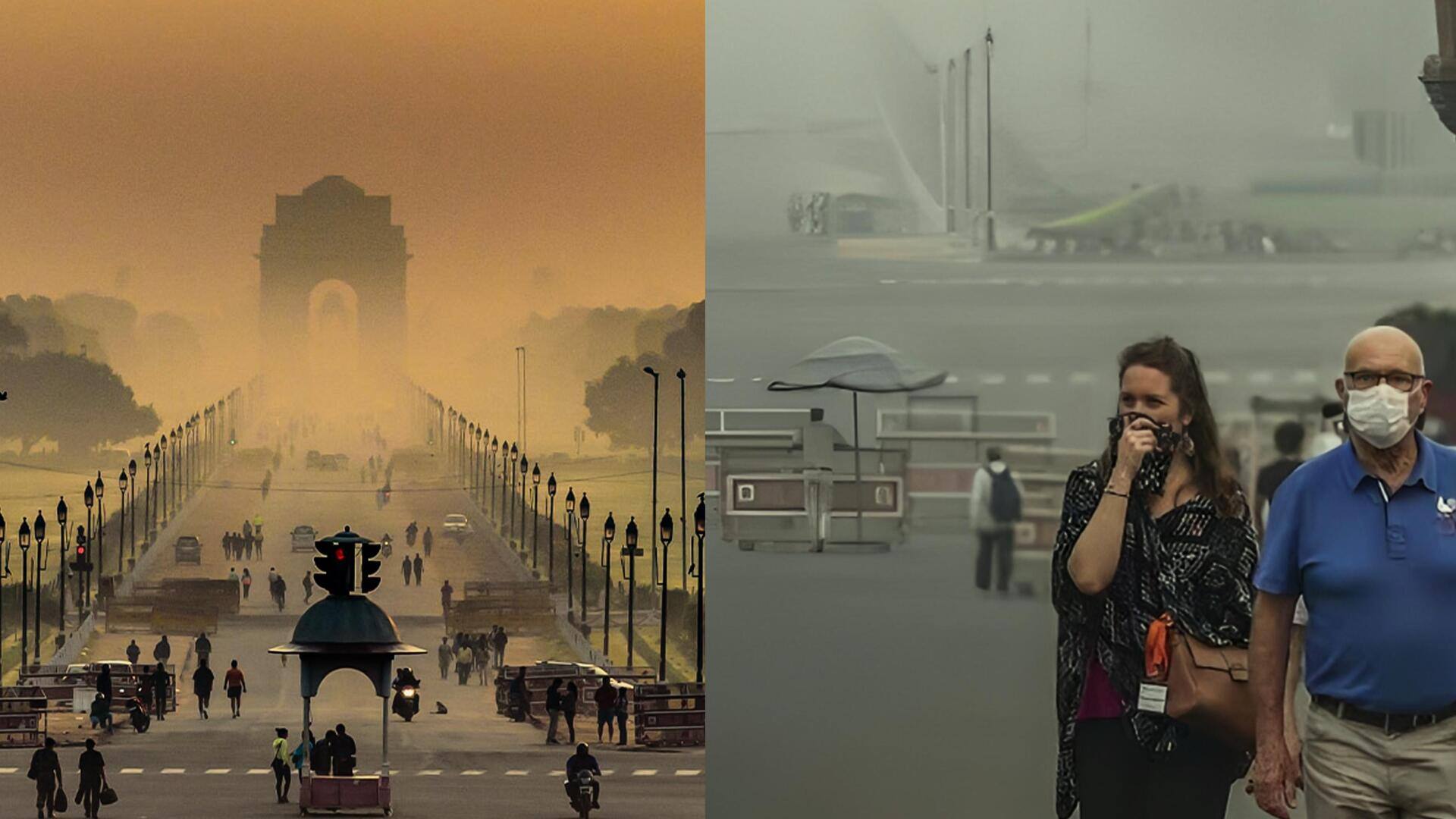
Air pollution: SC seeks report from Delhi, neighboring states
What's the story
The Supreme Court on Tuesday ordered the governments of Delhi, Uttar Pradesh, Punjab, Haryana, and Rajasthan to submit a report on steps taken to control stubble burning and its effects on the national capital's air quality.
Justice SK Kaul-led three-judge bench noted crop burning was a primary contributor to Delhi's pollution. He gave chief secretaries of these states a week to submit their affidavits.
This came as Delhi's air quality remained "very poor" for the fourth consecutive day on Tuesday.
Context
Why does this story matter?
Delhi is the most polluted city in India, and a recent report revealed that Delhiites are on track to lose 11.9 years of their lives due to toxic air.
Despite the recent efforts by the Aam Aadmi Party (AAP) government in Delhi to curb pollution, the air quality of Delhi-NCR has been reported to be between "poor" and "very poor."
On Tuesday, the overall air quality index (AQI) in Delhi was reportedly 350, per the Central Pollution Control Board (CPCB).
Context
Calls for measures to curb air pollution
With the arrival of winter and Diwali around the corner, Delhi and neighboring regions are bracing for deterioration in AQI.
The SC previously requested a report from the Commission for Air Quality Management (CAQM) on measures to reduce air pollution in and around the national capital in preparation for the winter season.
Separately, Delhi Environment Minister Gopal Rai announced that diesel-run buses entering from other states and operating in the Delhi-NCR will be required to use alternative fuel starting Wednesday.
Stubble burning
Stubble burning, its effects on air pollution
Stubble (parali) burning refers to the process of burning the remains of paddy crops to sow wheat in agricultural fields from September end to November.
It releases toxic pollutants like carbon monoxide (CO), methane (CH4), volatile organic compounds (VOC), and carcinogenic polycyclic aromatic hydrocarbons.
Punjab has reported 5,254 farm fires between September 15 and Sunday (October 29), making it the state with the highest number of stubble-burning incidents among Delhi's neighbors this year so far.
What Next?
Petitioner cites right to life and fundamental duties
Earlier, a plea was moved in the SC seeking the apex court's directions to states to implement measures to check air pollution.
It also called for the constitution of a committee led by a retired SC judge to tackle the stubble-burning-induced air pollution crisis.
The petitioner asserted that the situation violated the public's Right to Life under Article 21 of the Constitution, adding it is their obligation to uphold fundamental duties under Article 51A by filing this plea.
Delhi pollution
Delhi government launches Winter Action Plan
Meanwhile, the Delhi government, led by Chief Minister Arvind Kejriwal, launched the Winter Action Plan to tackle pollution caused by vehicles, biomass burning, and other activities.
It also launched the "Red Light On, Gaadi Off" campaign, which encourages commuters to turn off their engines while waiting on traffic signals to save fuel and reduce vehicular emissions.
On October 21, the AAP government also invoked Stage II of the Graded Response Action Plan (GRAP)—a set of anti-pollution measures—as the AQI worsened.